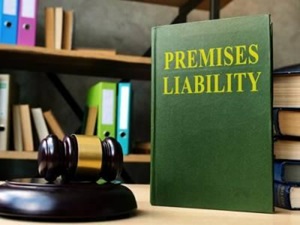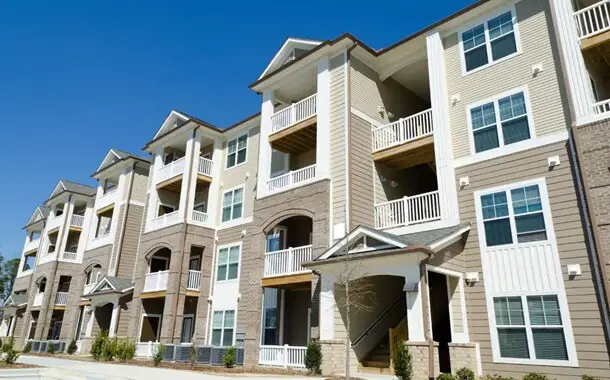How Much Does it Cost to Sue an Apartment Complex?
Last Updated on December 8, 2023
Written by CPA Alec Pow | Content Reviewed by ![]() CFA Alexander Popinker
CFA Alexander Popinker
Dealing with apartment issues like pests, lease disputes, or safety hazards? Many renters wonder if they can sue their landlord or apartment complex. This article outlines the most common legal reasons residents can take apartments to court, the costs they should expect, and how to file a case in small claims.
How Much Does it Cost to Sue an Apartment Complex?
In total, prospective plaintiff tenants face a wide cost range when suing their landlord – from under $100 for simple court filing fees alone to thousands in lawyer retainers if your specific case warrants legal representation.
Average Lawsuit Filing Fees
Filing fees consist of court charges for processing your submitted case documents. Costs range from $30-$100+ depending on the state and how much money gets requested in damages. Smaller claims under $2,000 or so usually sit on the lowest end around $30-60 filing free range.
Serving Papers Fees
Once submitted to the court, notification of the lawsuit must formally be delivered to the apartment complex. Hiring a process server runs $20-$100 per address. Rarely, local sheriffs may perform service for under $10 if courts have partnerships arranged.
Potential Attorney Fees
Lawyers cost $100-$500 hourly typically if using one instead of self-representing. Complex cases often justify legal help. But straightforward security deposit or lease violation disputes usually play out fine without retaining counsel.
Time Commitment Losses
Gathering evidence, traveling to/attending hearings, negotiating with the landlord – lawsuits consume substantial hours not working. Estimate your effective hourly income to tally potential earning losses if missing work.
Emotional Difficulty Burdens
Court battles also drain plaintiffs emotionally through anxiety going through legal complexities, especially if self-representing against experienced apartment attorneys. Quantifying energy drains gets difficult, but remains noteworthy.
Important Factors Influencing Total Costs
Several elements influence what gets spent on apartment lawsuits, mainly:
Case Complexity
Is your dispute fairly straightforward like a security deposit deduction disagreement? Or involve intricate details like serious mold contamination resulting in major health issues? Simpler cases keep costs down.
Whether You Lawyer Up
Attorneys provide helpful legal expertise but add substantial hourly fees. Using one can run $1,000+ making their necessity questionable for most basic disputes.
If Negotiation Occurs
Early settlement talks with the landlord before mediation or court often save resources otherwise spent seeking an official judgment. But fast compromise isn’t guaranteed.
Travel Involved
Must you take time off and commute to hearings in court locations far away? Or can you handle logistics remotely? Physical travel adds up expenses fast.
Carefully weighing the above cost drivers gives renters clearer insight into what suing requires financially in pursuing property, safety, or customer service accountability from landlords.
Added Potential Costs
Beyond court filing, paperwork serving, and representation fees also consider:
- Records Gathering/Copying – Obtaining repair invoices, videos, and statements from witnesses to support your claim all takes effort/resources.
- Child Care During Hearings – Getting child supervision also requires added costs if daycare overlaps with legal proceedings.
- Appeal Costs – If unhappy with an initial verdict, the plaintiff or defendant can choose to request an appeal review of the judge’s decision.
DIY Efforts Go Far
Tenants short on income can self-navigate many basic landlord disputes without paying lawyers if enough time is dedicated to preparing within legal housing statutes granting certain habitability, deposit return, and amenity access rights. Where there are gaps in your skills, try consulting tenant advocacy hotlines in your state for pointers rather than retaining high-priced attorneys right away.
Top Reasons Residents Sue Apartments
While rare, some fed-up tenants do head to small claims court when management refuses to address serious problems. Some common grounds for lawsuits include:
You might also like our articles about the cost of suing a hospital, an individual, or getting a landlord-tenant lawyer.
Security Deposit Disputes
Apartments keeping deposits after move-out sparks frequent small claims cases. All 50 states decree firm security deposit return deadlines and restrictions on unfair deduction fees landlords can extract. Residents often sue for deposit non-return or confusing, unfair charges taken.
Illegal Towing
Most states prohibit apartments towing vehicles without clear signage warnings in place. Parking enforcement rules also usually appear in the lease. Residents can sue if cars get towed without proper notices posted or for breach of contractual lease terms.
Unlivable Unit Conditions
Allowing units to become dangerously dilapidated through water leaks, pest infestations, lack of heating, or other hazards violates the warranty of habitability laws in certain states. Tenants may sue for uninhabitable, health-impacting conditions left unaddressed by ownership despite complaints.
Wrongful Evictions
If evicted without receiving full legal notices or had possessions mishandled, displaced renters can pursue property damage reimbursement via courts. Seeking re-entry to the unit requires consulting housing court instead.
General Negligence
Residents may sue apartments for acting negligently in diverse situations – like ignoring crime risks that led to a break-in or performing shoddy balcony repairs resulting in injury. Success requires proving the complex ignored “reasonable duty of care” in preventing the given harm as a landlord.
Does the Tenant Have to Move Before Suing?
 Renters don’t need to move out to sue an apartment in small claims court over problems like those above. Continuing tenants can seek reimbursement for out-of-pocket repair costs, medical bills from hazards, or even rent abatement for the days an issue persisted unfixed.
Renters don’t need to move out to sue an apartment in small claims court over problems like those above. Continuing tenants can seek reimbursement for out-of-pocket repair costs, medical bills from hazards, or even rent abatement for the days an issue persisted unfixed.
However, you usually must vacate first when suing for security deposit non-return or possessions disposed of unlawfully post-eviction. Review your claim details and state laws to determine if moving becomes necessary beforehand.
Federal Laws Protecting Renters
Besides state statutes governing landlord-tenant relations, federal legislation also grants renters certain rights. Two pivotal acts include:
Fair Housing Act – Forbids housing discrimination based on race, religion, gender, national origin, or disability. Harassment also qualifies as prohibited mistreatment under the act.
Fair Credit Reporting Act – Dictates what screening information apartments can request on applications. Also blocks landlords demanding extra security deposits or higher rent without just cause.
Consult a housing lawyer to discuss protections that federal regulations provide in landlord-tenant disputes. State and local statutes likely apply to your situation as well.
Steps to Take Before Suing Your Landlord
Suing remains a last resort option. We recommend renters first:
- Communicate – Politely inform management about any lease non-compliance or hazardous issues needing attention through phone calls, emails, and written letters stating grievances.
- Document – If disputes continue unresolved, catalog dates and details around the complex’s insufficient action via photos, videos, repair invoices, and communications exchanged.
- Research – Read the lease to double-check provisions related to the conflict, plus state laws on security deposits, habitability, and renter health/safety.
- Inspect – Some cities offer free property regulation enforcement walkthroughs to document code violations affecting tenants. Schedule an inspection to gain violation reports as evidence if severe lapses exist.
- Consult – Discuss your situation with a tenants’ rights group or landlord-tenant lawyer to gain clarity on the best next steps before heading to court.
Following those measures first puts renters in better positions heading into legal battles against neglectful apartments if defects persist unaddressed.
How to Sue Your Apartment in Small Claims Court
If conflicts remain unsettled after communicating, inspecting, researching, and consulting on issues, small claims filings become viable options. The process includes:
Preparing Your Court Documents
To sue, first gather:
- Proper defendant name/address – Confirm the apartment owner’s exact business name and current street address.
- Alleged lease breach details – Specify which actions violated the rental contract.
- Damages total – Calculate all monetary losses tied to their breach.
- Officially Filing Your Case
Visit your local small claims clerk, mail forms in, or e-file case documents depending on court rules. Pay required court fees upon submission.
Serving Notice on the Defendant
You cannot serve apartments yourself – ask the court clerk, local sheriff, or private process server to deliver case documents on your behalf instead. This ensures proper legal protocols are followed.
Showing Up Prepared For Court
Organize evidence neatly in labeled folders to reference during hearings. Rehearse clear explanations of the problems, relevant lease terms violated, damages totals, and the timeline involved. Articulate your narrative convincingly before a judge.
Suing ensures courts eventually hear renter grievances if talks with apartments don’t work. Just remember to communicate cordially first and gather enough documentation to demonstrate how the complex caused you harm before filing claims.
Alternative Resolution Options Besides Suing
Filing a lawsuit often causes resentment between parties. Renters sometimes pursue alternate reconciliation paths to settle disputes outside courtrooms instead, like:
Filing Complaints
The Better Business Bureau allows consumers to report mistreatment by companies via detailed complaints submitted on their website. Enough serious complaint volume against a given apartment complex may compel the higher management to intervene to rectify systemic issues flagged.
Seeking Mediation
Here, a neutral third-party mediator facilitates productive compromise talks between the two sides. Some courts offer free mediation before small claims cases get heard, giving closure outside courtroom arguments.
Any resolution route won’t fit every dispute. However, exploring arbitration, mediation, or reputational reporting options before suing may offer less stressful closure in certain situations compared to long legal fights – especially when parties seek to preserve their relationship.
Strategies for Lowering Lawsuit Costs
Below are some methods tenants short on legal budgets can use to reduce lawsuit burdens:
Thoroughly Research Laws – Substantial self-education on state tenant rights statutes helps you gather irrefutable evidence and craft a persuasive, compliant argument when self-representing. Go for free state housing department resources online or through calls/emails with their support teams.
Handle Logistics Yourself – Instead of hiring process servers, ask friends to assist with courtesy delivery notifications to keep serving fees low or utilize certified mail through USPS if courts permit that method.
Mitigate Time Off Needs – When possible, shift work hours around rather than taking full leave days to handle meetings, hearings, and mediations. Check if paid time off donations apply for documented court appearances as well.
Aim for Early Settlements – Good-faith efforts broker compromises often satisfy all without long court sagas. Write reasonable demand letters first that inspire recipients to revisit the issues more cooperatively.
Final Words
Renting an apartment doesn’t forfeit your consumer rights against egregious hazards or lease violations. Through careful documentation and consistently cordial communications, residents gain powerful protections and potential negotiation leverage when confronting grievances.
If the quality of life, finances, or safety gets jeopardized by rental unit issues, don’t suffer silently or move out right away. First inform your landlord of defects in writing, snap photos confirming complaints, research state laws in play, and speak with housing advocates on best recourse options before deciding whether to ultimately take legal action in court if unaddressed.
Equipped with evidence proving negligence, most informed tenants secure either conflict resolution or compensation without actually needing to sue delinquent landlords. But when all else fails, small claims filings put your complaint before a judge to potentially award damages.


Leave a Reply
Want to join the discussion?Feel free to contribute!